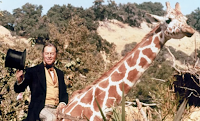It all
started so well. Salmon with green pea and lemon risotto on the Monday, Vietnamese
glazed beef sliders on Tuesday, and never the same thing twice. No one had time
to do this stuff from scratch anymore but now we could all eat like kings,
every night, without racking our brains. No more dragging the kids around the supermarket
after daycare, no more arguments over what to make. Just there on your doorstep
every night – the menu, the ingredients, the recipe.
The food
bag.
It was a
dark time in the world outside: the global financial crisis, bombings, riots
and fear. But as the nation hunkered down and re-focused on home renovation,
cooking shows and family values, it was an exciting time as well. Homes around
the country were mesmerised by Masterchef, My Kitchen Rules, Jamie and Nigella.
But who has time for all that hard work! This way everyone could be a foodie,
without the prep and planning. Well, everyone who could afford it. At work the
next day, everyone was on the same page: did little Oliver eat his broccolini
last night? How did your family like the fennel dressing? And all over New
Zealand kids were learning about the world while they helped Mum and Dad cook
Sumerian lamb with roast parsnip and spinach couscous. It was quality family time.
 |
| Photo credit: isaynotomato.com |
No one
claimed responsibility when it happened. On Thursday, everything was normal - by
Friday the world had turned upside down. It started like any ordinary evening,
with the bag on the doorstep and a recipe for Catalan pork fettucine with a
parmesan garlic crumb. And all over the country, life coaches, software
developers,
conveyancing solicitors and real estate agents were chopping and
mixing and firing up the Le Creuset. Instagram was going off. Little Sophies and Jacobs set the tables in a hundred thousand
households, and dinner was served.
 |
| Photo credit: Ibelieveicanfry.com |
And then,
suddenly, silence. Where were all the tweets, reviewing this one? The eye-rolling
teenagers’ ironic dining-table snapchats? What on earth was going on?
The next
morning it became startlingly, horrifyingly clear. The entire middle class of New Zealand was gone. Wiped out – by a
food-bag-borne illness. Was it accidental? Botulism? Or something more sinister? A food bag hack. There was simply not
enough of the medical fraternity left to run the tests. But as the survivors slowly
came to grips with this disaster, the realisation dawned that no matter who was
responsible, things would never be the same. The balance between production and
consumption was lost. Trade, policy, finance – the entire personal training
industry – nothing could be sustained. The corridors of power were deserted and
the million dollar homes stood empty. And this was how The Collapse began.
*From an
idea by Nicola Little.




